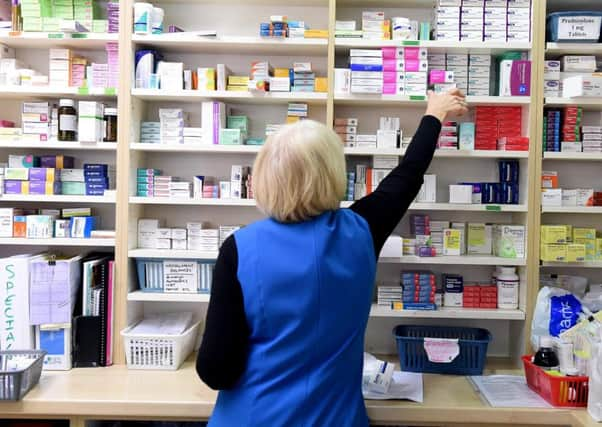Kevan Christie: Pharmacy plan is prescription for better care


It has been touted for some time that the ever-increasing burden placed on GPs can to a certain extent be relieved if we give pharmacists more responsibility.
However – and I’m sure the Royal College of General Practitioners in Scotland will agree with me here – this cannot be a backdoor way of not meeting the need for more doctors.
Advertisement
Hide AdAdvertisement
Hide AdThis latest strategy – and we do love a strategy in this country – aims to align pharmacy with the policies set out in the Health and Social Care Delivery Plan, the National Clinical Strategy, Realistic Medicine, the Mental Health Strategy and at least another eight health strategies or policies NHS Scotland and the Scottish Government currently have on the go.
The strategies may change but the problems remain the same and show no sign of going away anytime soon.
Last month’s damning report by Audit Scotland laid bare the Scottish Government’s failure to plan for the long-term future of the NHS in Scotland which has led to a staffing “crisis” as the service struggles to recruit senior medics and nurses.
With this in mind, it remains to be seen how the NHS plans to recruit more people into pharmacy with the advanced clinical skills required.
The impact a move away from not seeing the doctor may have on some people should also be taken into consideration. Often a visit to the GP may hide an underlying problem, possibly a mental health issue, that can be revealed in the course of a chat even if it is for only ten minutes. Will the pharmacist be able to spot these signs? Obviously the ability to refer people on to the GP is a tool the pharmacist can use. But what are the boundaries between simply getting a prescription from the chemist or being referred to the doctor?
I’m sure all this has been considered but it won’t take long for the pharmacist to become overburdened as people become accustomed to using the service. One concern is that medicine in general becomes easier to obtain making it open to abuse.
It’s of benefit to no-one for any kind of move towards the kind of system they have in the US where addiction to painkillers is a national epidemic. This has to be carefully monitored and pharmacists have to take responsibility for all their actions not just fob things off on the GPs – which I’m sure won’t happen.
Hopefully, the new strategy will go a long way to helping the nearly 20 per cent of our population living in remote and rural communities who have paid a heavy price amid the NHS staffing crisis. These areas have higher levels of older people and the plan to introduce technology enabled care should in theory help but relies heavily on everyone having a rudimentary grasp of the internet – which isn’t always the case.
Advertisement
Hide AdAdvertisement
Hide AdGreat work is already being done with Scotland’s first ever street pharmacies to help the homeless and prescribe medicine for them on the spot. There are a lot of good people in Scottish pharmacy, who are full of innovative ideas and have a genuine desire to help and drive forward their profession.
So, overall this is a good idea and seems to be commonsense.